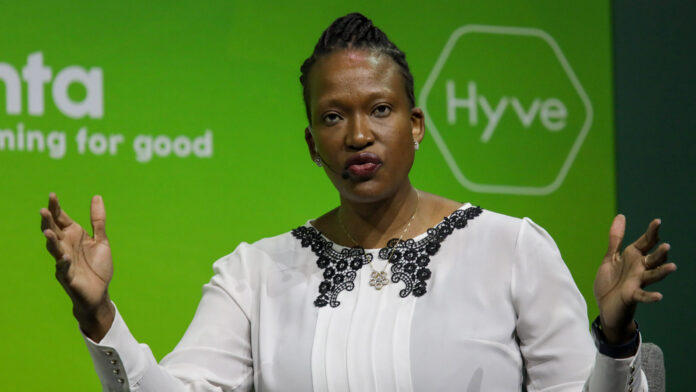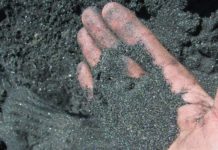
KUMBA Iron Ore hopes to participate in industry efforts to have the Sishen to Saldanha iron ore and manganese rail route concessioned to a third party over the next 18 months.
Mpumi Zikalala, CEO of Kumba said on Tuesday there had been a step-change in the attitude of state-owned port and rail logistics company Transnet to privatisation of the 860 kilometre iron ore corridor.
The Department of Transport is to issue a request for information on public private sector partnership with a request for proposals to follow soon after, said Zikalala.
“The RFI will be released over the next few weeks. We don’t have a final timeline. We do, however, know that the entire RFI to RFP process will not be a short one. We are looking at anything circa 18 months for the entire process,” Zikalala said.
“We have to acknowledge that the challenges are immense and Transnet can’t resolve on them on their own,” said Zikalala. Not least of these challenges is the capital required to rehabilitate the line estimated by Minerals Council chief economist Hugo Pienaar earlier this month at R15bn per year. Zikalala said Transnet’s balance sheet was “constrained”. Transnet spent R13bn servicing debt and repaying capital last year. At R136bn, its debt represents a gearing ratio of 48%,
Duncan Wanblad, CEO of Anglo American which owns 70% of Kumba, told Miningmx in February that Government’s Network Statement issued in December, which has opened the door to a tariff-based private sector investment in rolling stock in return for usage, had limitations. “It’s a package deal,” he said.
“Whoever operates these lines needs to assurance there is safety first. You can’t concession top of rail when there is work to concession the rail as well. Either Treasury has to come to party or they have to think more creatively how they partner this stuff”.
South Africa’s ore rail networks have deteriorated heavily. In December 2023, Kumba shelved plans to increase production saying that following a business review output will be flat from 2024 to 2026 amid a 15% decline in railed ore since 2019.
Iron ore sales guidance for 2025 is between 35 to 37 million tons (Mt) which is well short of the 40Mt a year Zikalala said Kumba would like to get to in the future.
In the 12 months ended December, Kumba sold 36.3Mt of iron ore which was just within its 36-38Mt sales guidance, largely owing to Transnet shortfalls. There were six major derailments of trains during the year although in the fourth quarter, following a shutdown for maintenance, there as a 5% improvement in the run-rate, Zikalala said.
Ore stockpiles increased to 7.5Mt by year-end of which 6.9Mt were at the mine with relatively low levels at the port reflecting Transnet’s problems. However, high mine stocks would become “a positive” in 2026 as Kumba had approved the restart of its R11.2bn UHDMS (ultra high dense media separation) project which would require the company to reduce production in order to “tie-in” existing operations with the new plant.
Reporting its full-year results ended December, Kumba declared a final dividend of R19.90 per share taking the total cash payout for its 2025 financial year to R38.67 per share which represents all of its earnings. Kumba’s payout policy is between 50% to 75% of headline earnings. This is despite reporting a 45% year-on-year decline in basic earnings, largely owing to a decline in the iron ore price.










